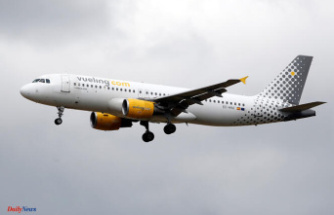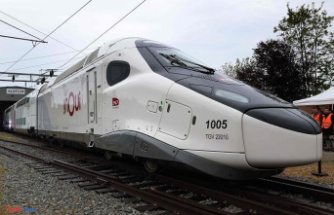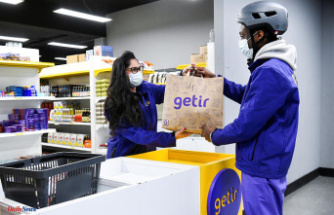The German car manufacturers report increasing sales. But the numbers are deceptive. Now that the material and delivery problems have largely come to an end, the vehicles that were ordered a long time ago are finally being delivered, say experts. New orders, on the other hand, are rather sparse.
The car manufacturers are still stuck with their sales figures. The number of new registrations increased in September by a strong 14 percent to around 225,000, as reported by the Federal Motor Transport Authority. However, this is not a trend reversal, because last year car sales were particularly low due to a lack of material. "September looks more optimistic than it is," said auto expert Ferdinand Dudenhöffer. The figures only reflected the high order backlog of previous months, in which the car manufacturers could hardly meet the demand due to missing components. In the meantime, the factories would be better supplied with components and the orders processed.
"Production is running smoothly again," said Dudenhöffer, who heads the CAR Institute in Duisburg. However, customers have since held back because of high inflation and fears of recession. Getting new orders is currently extremely difficult. "A tipping point from a shortage of supply to a lack of customers or weak demand is becoming increasingly apparent."
The situation remains difficult for purely electric cars, for which state subsidies will be capped at the end of the year. According to the KBA, around 44,400 new battery cars hit the streets in September, almost a third more than a year ago. Almost every fifth new car now has a pure electric motor.
"Anyone who buys an e-car now has to expect that they will no longer get the old premium because of the long delivery times," explained Dudenhöffer. According to Stefan Bratzel, founder of the Center of Automotive Management (CAM) in Bergisch Gladbach, almost 272,500 electric vehicles were newly registered between January and September, 15 percent more than in the same period last year. However, the market ramp-up is still strongly influenced by "subsidies and regulations". "Due to rising raw material and production costs, it is unlikely that procurement costs for electric vehicles will fall in the medium term," said Bratzel.
The importers' association VDIK said the balance after three quarters was sobering. For the first time ever, car sales are below two million units after nine months. "The market urgently needs positive impetus through stable framework conditions and support for consumers in view of rising energy and living costs," said association leader Reinhard Zirpel. The German Association of the Automotive Industry (VDA) recently corrected its sales forecast for the current year downwards again. The association is now assuming only 2.5 million new registrations in Germany by 2022. That would be a decrease of six percent compared to the previous year.
The management consultancy EY is also assuming weaker demand for the next few months. A real recovery of the new car market is a long way off, predicted EY car expert Peter Fuss. Sales are still below pre-crisis levels.
In September, the statistics of the Flensburg authorities showed an increase in registrations for two thirds of the German brands. The clearest growth was at the VW subsidiary Audi, with 71.8 percent, followed by Mercedes with plus 46.1 percent and VW with plus 30.2 percent. Porsche sold 15.3 percent more of its sports cars and SUVs. In contrast, Asian manufacturers such as Suzuki, Mitsubishi and Honda posted double-digit declines. Renault and Opel also drove in reverse for new registrations. Overall, new registrations have fallen by 7.4 percent to 1.87 million vehicles since the beginning of the year.












